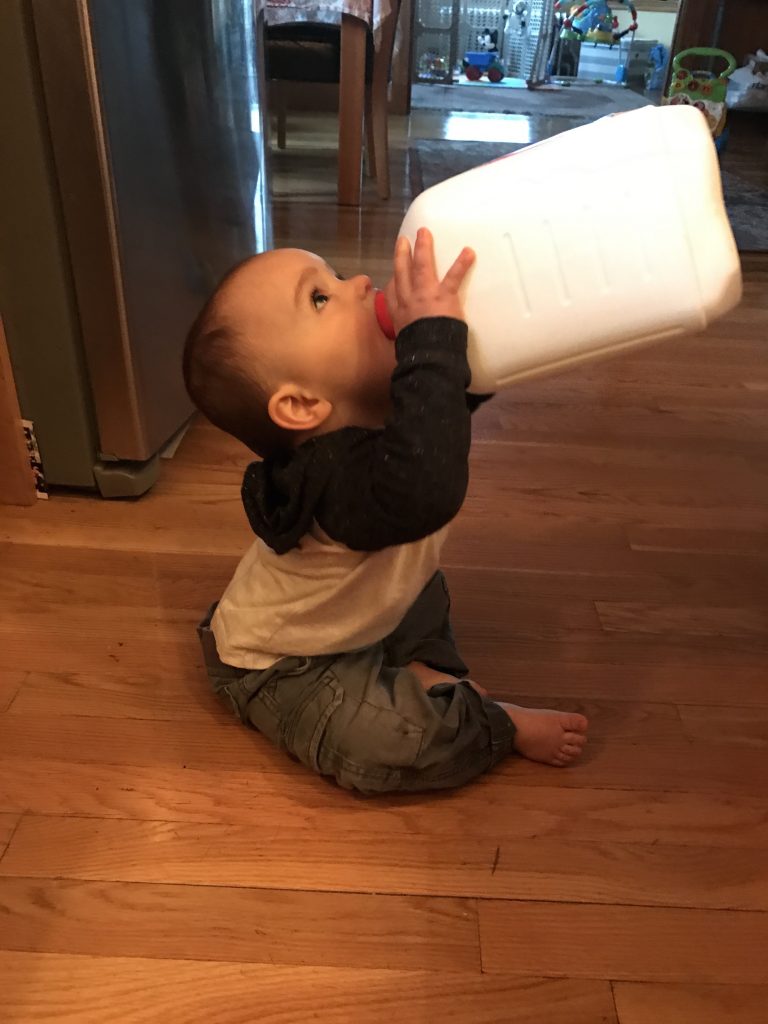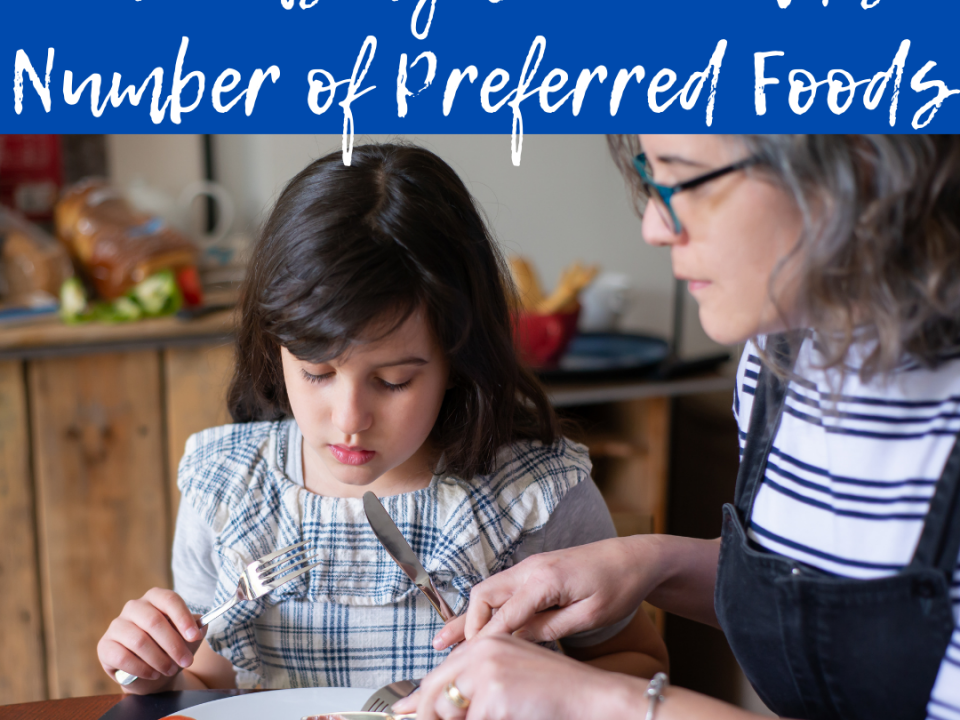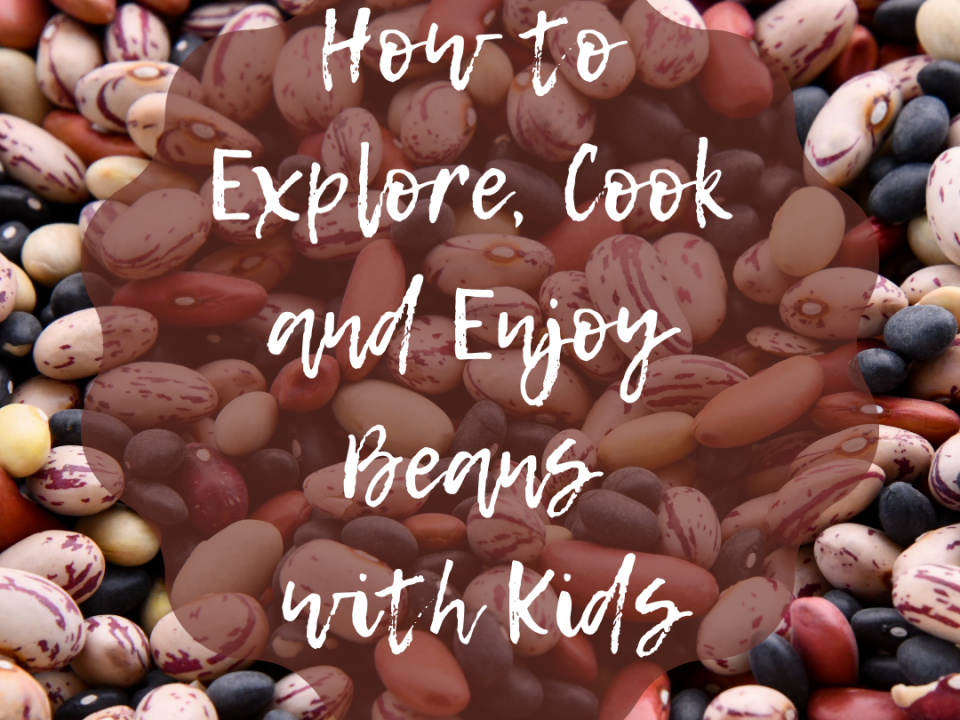How Much Calcium and Vitamin D Does Your Toddler Need?

Peach Gorgonzola Flatbread with Uncured Bacon and Arugula
July 11, 2017
Instant Pot Chicken Coconut Curry
July 21, 2017Calcium and Vitamin D are both essential nutrients your little one needs to develop and grow healthy strong bones. Dairy is the most common way to get in adequate calcium and vitamin D, but if your son or daughter is allergic or intolerant to dairy products there are other ways to meet the calcium and vitamin D needs.
My little guy is a big fan of all things dairy (just like his momma) !
I’m saving this picture for when he’s a teenager and actually starts drinking milk right from the jug 😉

Back to the topic at hand! Here are some of the most common questions I get asked and my answers!
How much calcium and vitamin D does my toddler need?
The Recommended Daily Allowance (RDA) for Children 1-3 years of age is 700mg of calcium a day and 600IU of vitamin D.
What does my child need to eat/drink to meet the RDA?
As mentioned before dairy is the easiest way to meet the RDA for calcium and vitamin D, because these foods contain the highest amount of calcium and vitamin D per serving. The current recommendation is 2 servings of dairy a day.
One serving is equivalent to 1 cup milk, 1 cup yogurt (or soft cheese like cottage cheese) and 1.5 ounces of hard cheese (i.e Cheddar Cheese).
Servings are based on calcium content, each serving contains about 250-300mg of calcium and 100 IU of vitamin D. Other foods in your toddlers diet like broccoli, spinach (and other greens), salmon, tofu, and fortified cereals and orange juice provide additional calcium and vitamin D to meet the RDA(see full list below).
Sun is also a great source of vitamin D!
For more information check out the National Institute of Health (NIH) website for calcium and vitamin D needs.
What if my child has a dairy allergy or lactose intolerance?
There are plenty of plant based food sources and fortified foods that your toddler can consume to meet their needs.
Check out these alternative sources:
Non-dairy foods fortified with calcium:
- fortified unsweetened soy, rice or almond milk
- fortified orange juice
- tofu made with calcium sulfate
- ready-to-eat fortified cereal
Non-dairy foods with naturally occurring calcium:
- sardines, canned in oil, with bones
- pink salmon, canned, with bones
- spinach
- collard greens
- bock choy, cooked
- tablespoons of tahini
- white beans(navy beans), cooked
- almond butter
Vitamin D
Non-Dairy foods fortified with Vitamin D:
- orange juice, fortified with vitamin D
- fortified, ready-to-eat cereal
Non-Dairy foods with naturally occurring Vitamin D:
- salmon
- canned tuna
- mackerel
- large egg yolk
Take Away: If your toddler is unable to tolerate dairy products make sure to offer a variety of foods that are fortified with and naturally contain calcium and vitamin D. If necessary they may be prescribed a supplement by their pediatrician.
What type of dairy products should I choose for my toddler?
It’s recommended that Toddlers age 1-2 consume whole milk dairy products. This includes whole milk, whole milk yogurt, and full fat cheese. Whole milk dairy provides necessary fat needed for normal growth and brain development. Once your toddler is 2 you can switch to low fat dairy products, unless otherwise recommended by your child’s pediatrician. More research is showing that there may be positive benefits to continuing whole milk products beyond the age of two including higher vitamin D levels and healthy weight. This may be due to the fact that the additional fat in milk helps absorbs the vitamin D, a fat soluble vitamin, and with satiety.
If your toddler does not tolerate dairy make sure to offer other foods that contain fat including avocado, olive oil, whole eggs, and nut/seed butters.
This information is meant to help guide your food choices when feeding your child. Don’t worry about getting caught up with the numbers! Being aware of what you are feeding your child is important. Offer them foods high in calcium and vitamin D and then allow them to determine what and how much to consume. Avoid forcing your child to consume anything in particular, instead continue to offer them these foods and they will eventually try it!
*This information is not to be taken as medical advice. Please make sure to speak with your child’s pediatrician if you have any questions.





